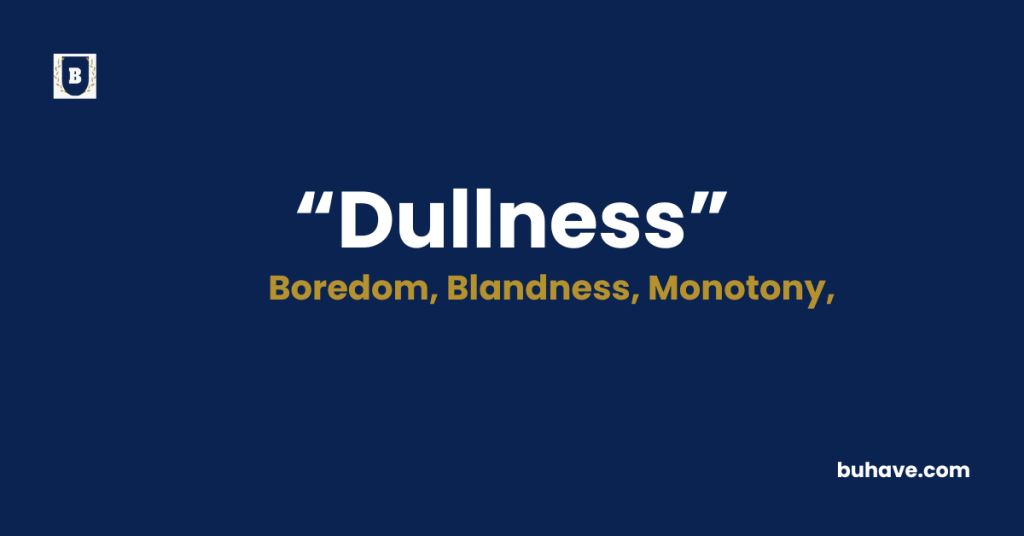The word ‘Dullness’ (Noun) describes a lack of brightness, sharpness, excitement, or liveliness. It can apply to physical properties like color or sound, or to emotional states, mental sharpness, and activities. In this guide, you’ll discover the full definition, word origin, example sentences, synonyms, antonyms, and common usage questions for ‘Dullness.’
Dullness Explained in Depth
A complete and detailed guide to the word ‘Dullness’ including meaning, definition, examples, etymology, synonyms, and antonyms.
Meanings of Dullness
Dullness refers to the state of being dull in any of several senses: lacking brightness or vividness, lacking sharpness or clarity, or lacking interest and excitement. It may describe an uninspired experience, a low mental state, or something visually or physically lacking in intensity or effectiveness.
Definition
Dullness is the quality or condition of being dull—whether in appearance, thought, sound, or mood. It is often used to express boredom, monotony, dimness, or mental sluggishness. It can also relate to physical properties such as a dull blade or a muted color.
Etymology
The word “dullness” comes from the adjective “dull, Over time, the word expanded to cover physical, emotional, and intellectual dullness.
Example Sentences
- The dullness of the gray sky made the afternoon feel even longer.
- He struggled with mental dullness after staying up all night.
- The lecture was criticized for its dullness and lack of engagement.
Dullness Synonyms
- Boredom
- Monotony
- Drabness
- Lifelessness
- Flatness
- Dimness
- Staleness
- Tedium
- Sluggishness
- Insipidity
Dullness Antonyms
- Brightness
- Sharpness
- Excitement
- Clarity
- Vivacity
- Liveliness
- Energy
- Vividness
- Alertness
- Spiritedness
FAQs about Dullness
Here are some frequently asked questions (FAQs) about the word “Dullness”
1. Is dullness always a negative quality?
Not always. In some cases, like a soft dull light, it can be calming or desirable depending on context.
2. What causes mental dullness?
It can be caused by fatigue, lack of stimulation, poor nutrition, or boredom. It often refers to a foggy or slow-thinking state.
3, How is dullness used in physical descriptions?
It might describe a surface without shine (e.g., “the dullness of the metal”) or muted colors.
4. Can dullness describe a personality?
Yes. Someone may be described as having a dull personality if they appear unenthusiastic or lack vibrancy.
5. Is dullness the same as monotony?
They overlap in meaning, but “monotony” emphasizes repetition, while “dullness” focuses more broadly on a lack of interest or sharpness.

















